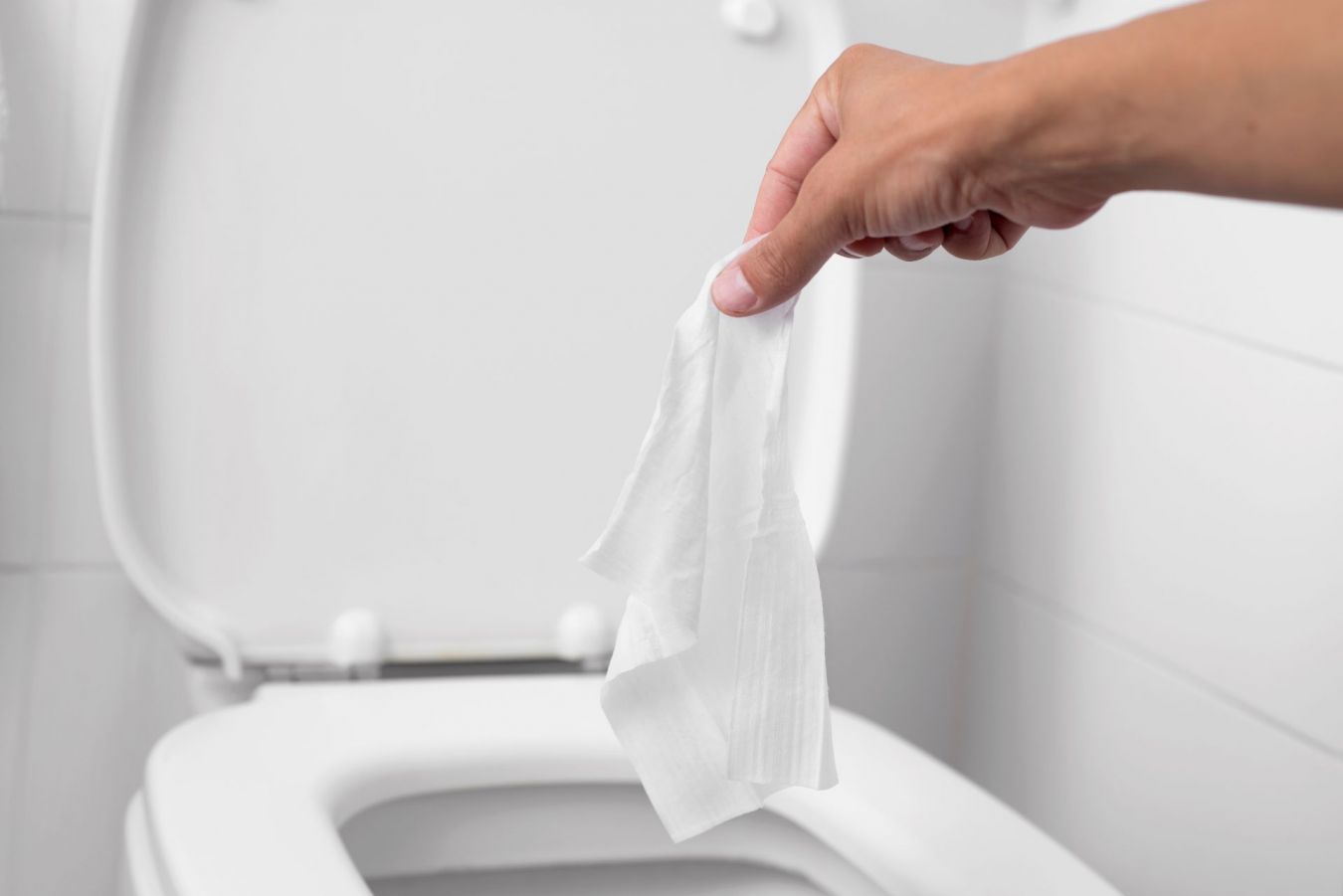
Marine Conservation Society: When wet wipes turn nasty
Monday 19th October, 2020By Rachel Wyatt, Policy and Advocacy Manager (Clean Seas), Marine Conservation Society
Last September, over 8,000 wet wipes were found on our beaches in just one weekend, during the Great British Beach Clean 2019, and since we began recording them in 2005 the numbers of wet wipes found have increased by 1,029%. Many end up in our ocean, where, over time, they break down into smaller and smaller pieces adding to a soup of microplastic pollution. Wet wipes are predominantly made of plastic but can sadly be mistaken as food by marine life.
How do wet wipes end up on our beaches?
Although we have high standards for sewage treatment in the UK, many of our homes are connected to combined sewers – this means they collect wastewater from our homes and rainwater run-off, from streets and roads, in the same pipes. During heavy rain combined sewers can be overwhelmed with water and to prevent sewer flooding, storm overflows spill untreated sewage straight into rivers, estuaries and coastal waters. Although many overflows have screens, this doesn’t stop all of the solid waste, like wet wipes, from making its way into our watercourses.
In addition, sewer pipes can be surprisingly small and can easily become blocked if people flush things like wet wipes down the toilet – this can cause sewer spills even in dry conditions and increase the frequency of overflows by reducing capacity within the network.
Should wet wipes be banned like other single-use plastic items?
You may have recently seen in the news that plastic straws, stirrers and cotton buds have been banned in England and that Wales and Scotland are consulting on similar bans. Some people have been asking if plastic wet wipes should be banned too.
I wish the solution was that simple, as wet wipes, regardless of whether they are made of plastic or not, do not fit with the concept of a circular economy – one where we keep resources in use for as long as possible, as opposed to our current model of ‘make, use, dispose’. Wet wipes are resource and carbon-heavy and packaged in plastic material which is typically not able to be recycled.
Ideally people wouldn’t use them – but for some wet wipes aren’t a lifestyle choice, but are necessary for health and quality of life which means we can’t and shouldn’t call for a ban on all wipes.
That’s why at the Marine Conservation Society, we think plastic wet wipes should be banned, but this is only a small part of the solution. We need to ensure the best environmental standards and outcome. By only banning plastic wipes the problem of people flushing wipes which are not designed to be flushed will still not be solved.
You might also imagine that if you bought a wet wipe labelled as compostable - it will biodegrade quickly once it makes its way to landfill. Unfortunately, this is not the case - landfills typically have little to no oxygen (it’s why they produce so much methane) meaning the wipe can’t biodegrade.
Therefore, a ban of plastic wet wipes must be combined with Extended Producer Responsibility (EPR) being applied to all other types of wipes – those that are made from non-plastic materials and often labelled as biodegradable, compostable etc. EPR would mean that the companies that sell wet wipes made from other materials would have to fund consumer campaigns to ensure correct disposal, and pay for the clean-up of any wipes which make their way into the environment. EPR could also be used to encourage people to switch to reusable products as an alternative to single-use wipes which would have wider-reaching environmental benefits than people simply switching to a non-plastic single-use wipe.
A ban on plastic wet wipes with a comprehensive EPR applied to the rest would reduce the number of wet wipes found on our beaches and help to pave the way for consumers to switch to other reusable wipes.
There are currently consultations open in Wales (until 22nd October 2020) and Scotland (until 4th January 2021) which you can add your views to.

